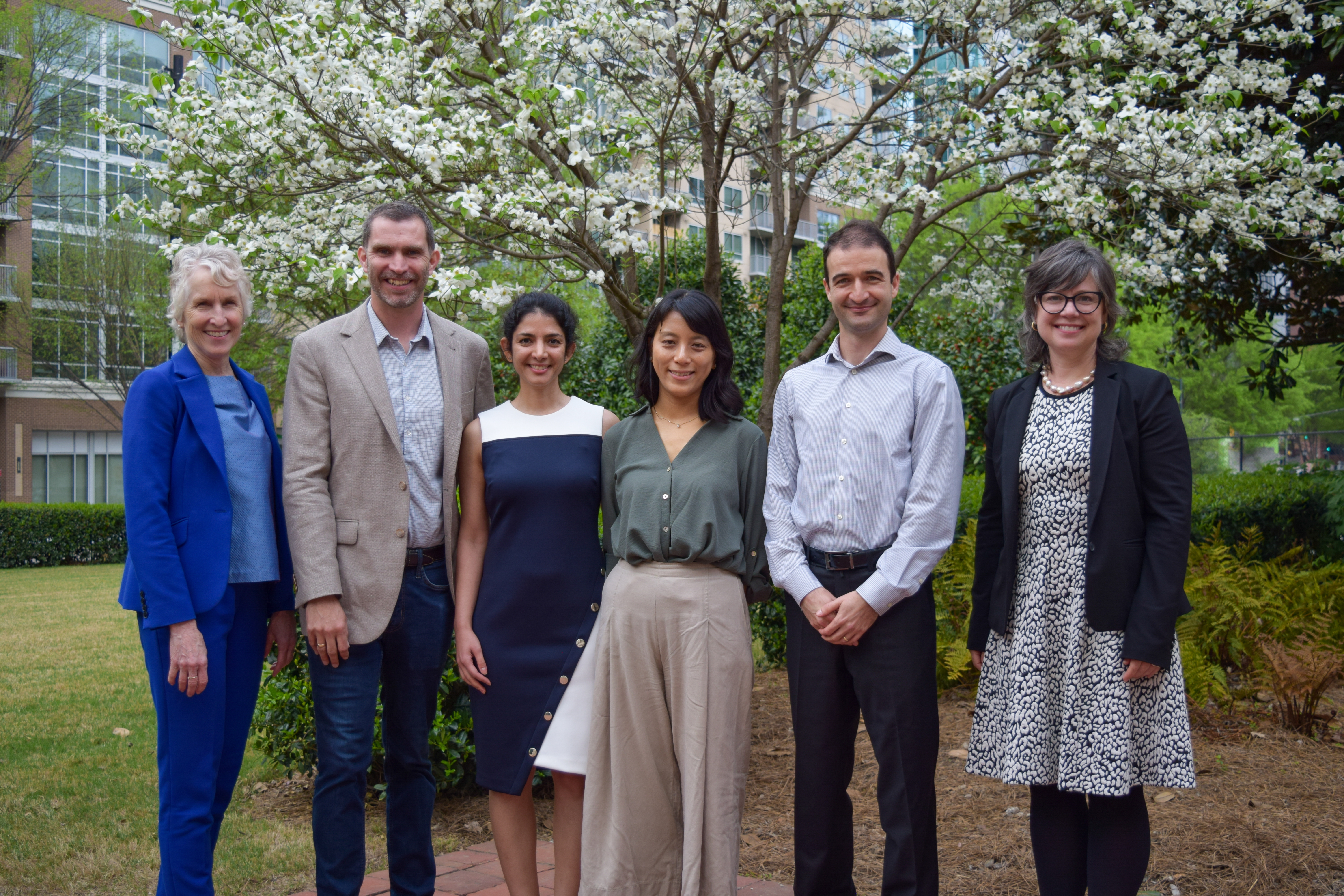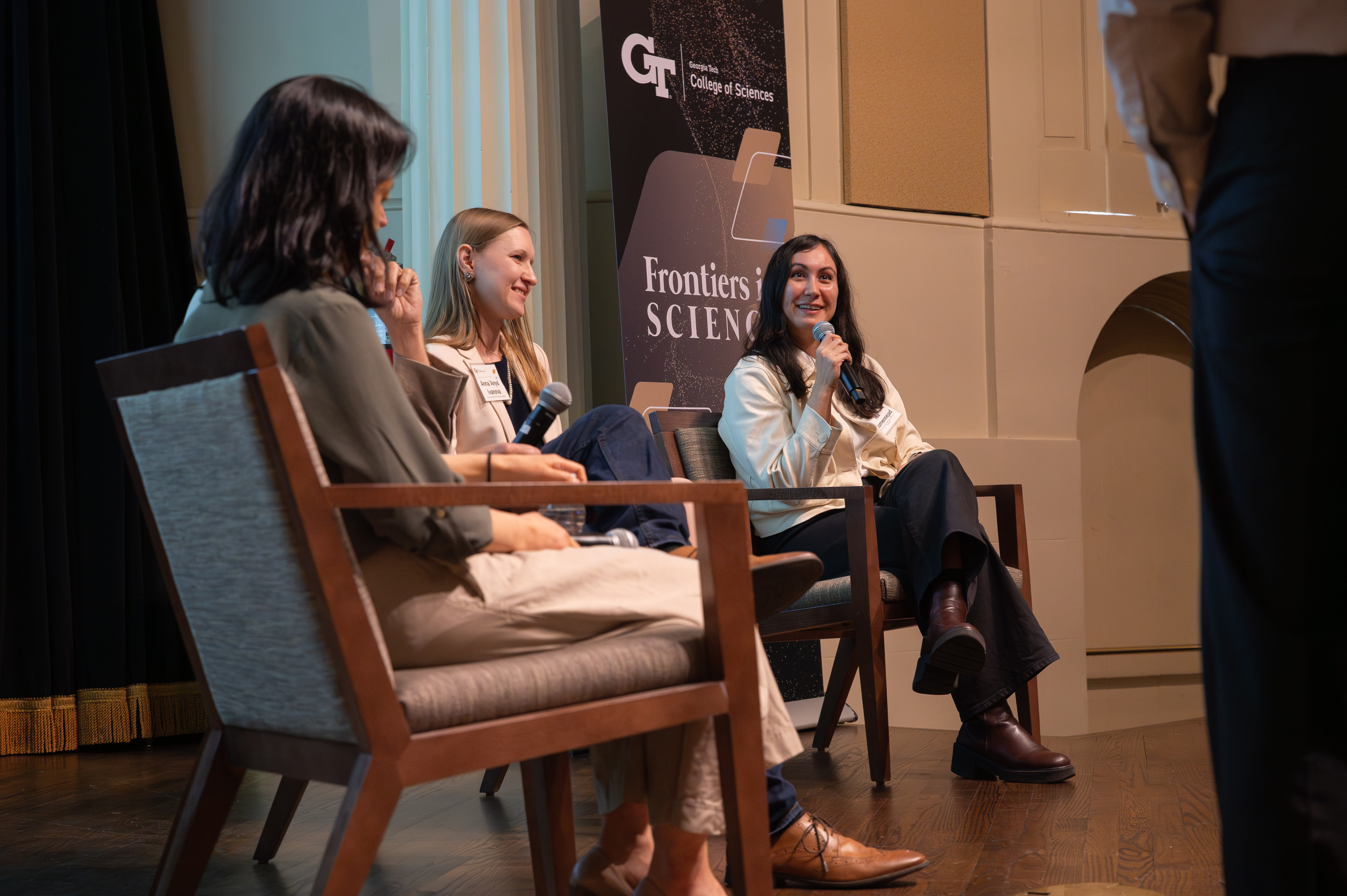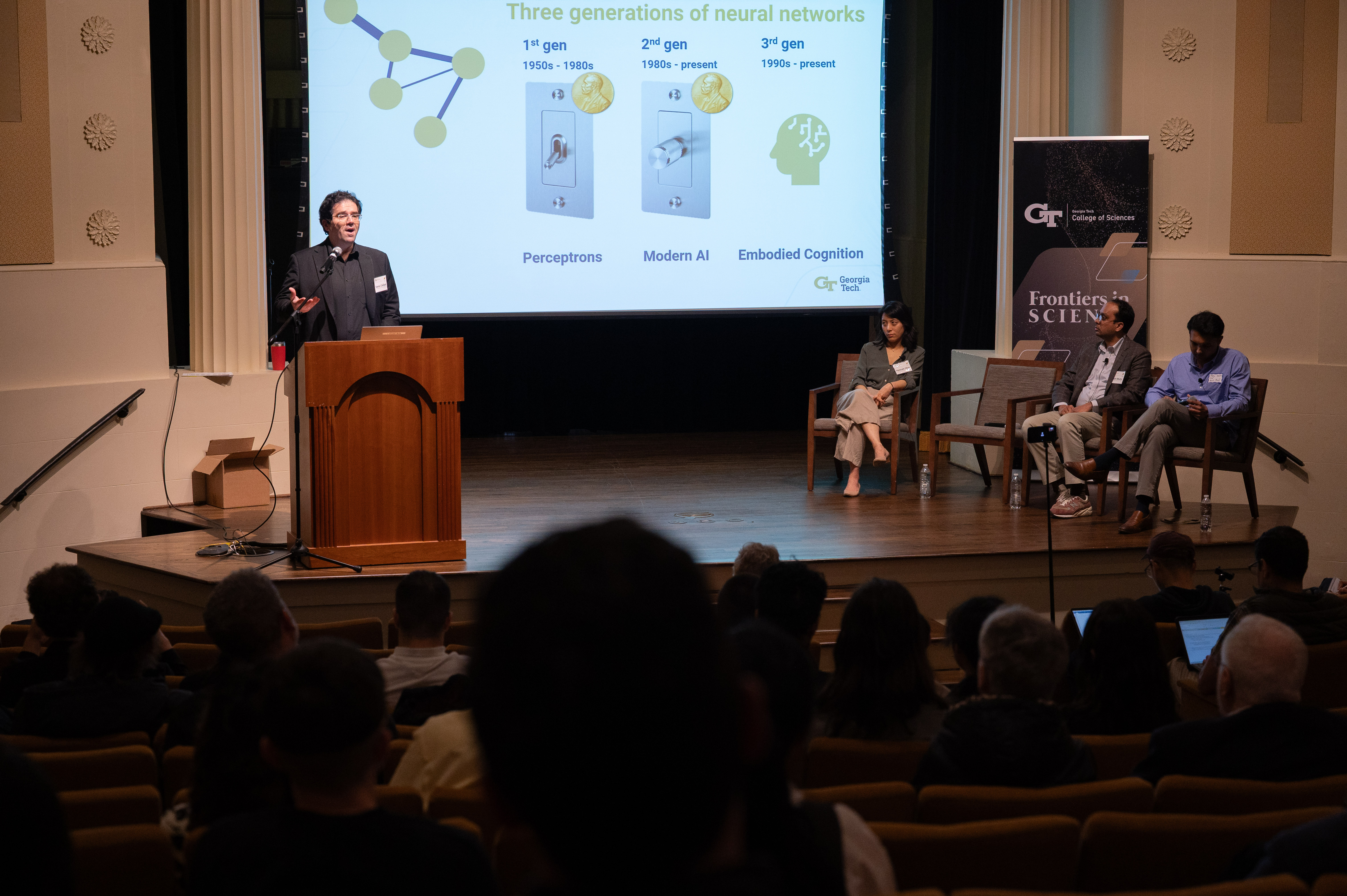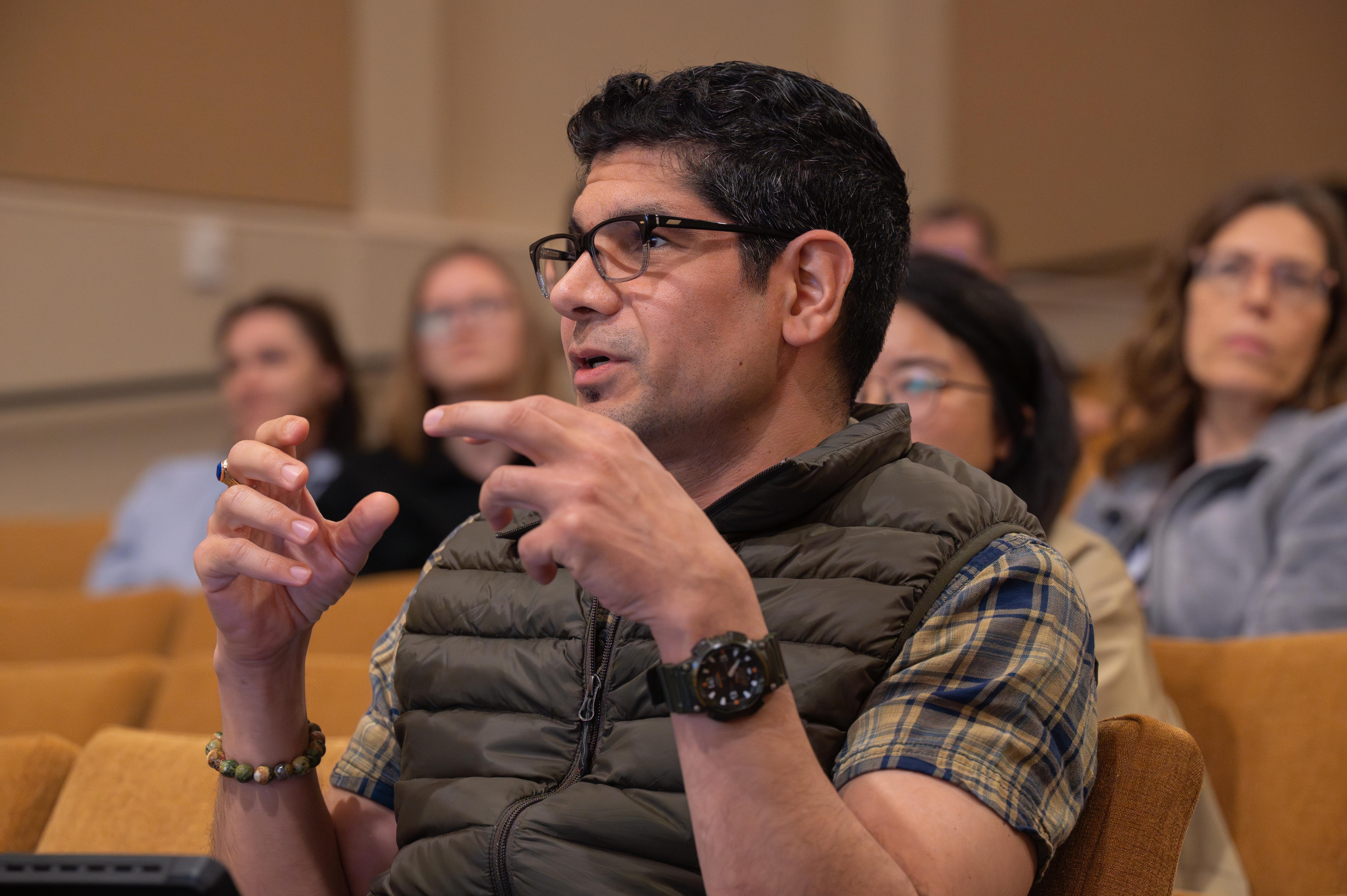More than 150 researchers, students, faculty, and alumni gathered last week at the Historic Academy of Medicine at Georgia Tech for the 2025 Frontiers in Science Conference and Symposium.
This year, the College of Sciences’ signature research event centered on the intersection of neuroscience, cognition, and artificial intelligence. Specifically, the event highlighted how AI is transforming our understanding of the brain and how neuroscience and psychology are informing new developments in AI — sparking a wave of innovation.
Dean Susan Lozier, who also serves as Betsy Middleton and John Clark Sutherland Chair and as a professor in the School of Earth and Atmospheric Sciences, emphasized the interdisciplinary nature of the event’s panels — which included faculty from several schools across campus, as well as external keynote speakers.
“This is an exciting time at the College of Sciences and Georgia Tech. We are working at the forefront of so many questions about intelligence — human, artificial, and where the two converge,” says Lozier. “I hope our community found the concepts and ideas raised during Frontiers in Science as inspiring and thought-provoking as I did.”
Intelligence: From AI to the Brain — and Back
During the full day of talks, a dozen faculty members and researchers from the Colleges of Science, Computing, and Engineering shared some of the latest developments in our understanding of biological and artificial intelligence. Morning sessions explored how AI is driving innovations in cognitive science and neuroscience research, unearthing new insights into cognitive function. Afternoon presentations focused on what the brain can tell us about AI and how such information might direct AI advances.
Presentations led by Ida Momennejad of Microsoft and Hal Greenwald of the Air Force Office of Scientific Research provided industry and government insights — particularly as related to research trends and challenges.
The midday poster session, which featured 90-second presentations by nine students and post-doctoral researchers, gave attendees the opportunity to learn more about the research conducted in Georgia Tech labs. Nikolas McNeal, a Ph.D. scholar in machine learning, and Aishawarya Balwani, a Ph.D. scholar in electrical and computer engineering, were recognized for best posters.
Frontiers in Science concluded with a session dedicated to audience questions, which encouraged reflections on AI’s future in our society and the range of environmental, safety, and philosophical questions raised by transformative technology.
Cognition and intelligence at Tech
The 2025 edition of Frontiers in Science comes at a pivotal moment at Georgia Tech, as the Institute continues to expand its research and teaching leadership in biological and artificial intelligence.
Georgia Tech Executive Vice President for Research Tim Lieuwen, who also serves as Regents’ Professor and David S. Lewis, Jr. Chair in the Daniel Guggenheim School of Aerospace Engineering, noted that the Institute is leading the way in AI innovation. He spotlighted some of Georgia Tech’s newest initiatives and programs, including Tech AI — an interdisciplinary hub connecting cutting-edge AI research taking place on campus with AI-driven applications and solutions for our world.
Other recent developments include the creation of the Center of Excellence in Computation Cognition and the Institute for Neuroscience, Neurotechnology, and Society, which builds upon the Neuro Next Initiative. A minor in computation and cognition and a Ph.D. in neuroscience and neurotechnology are two of the latest additions to Georgia Tech’s academic offerings. The latter builds on the B.S. in neuroscience program, currently the fastest-growing undergraduate major at the Institute.
Experience the event in pictures through the College of Sciences’ Flickr account, and discover the highlights via the day’s live publications on Georgia Tech Neuro Next Initiative’s accounts on BlueSky and X.
For More Information Contact
Writer: Lindsay C. Vidal






